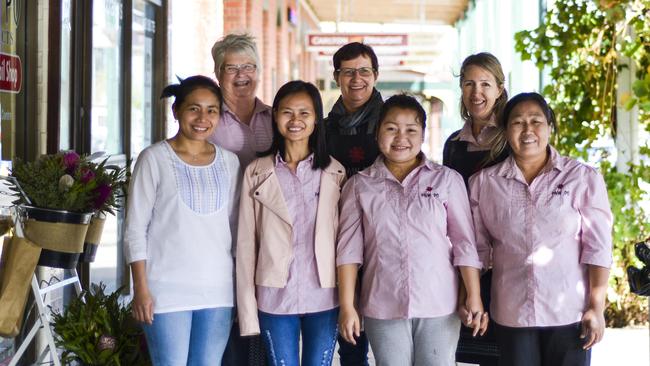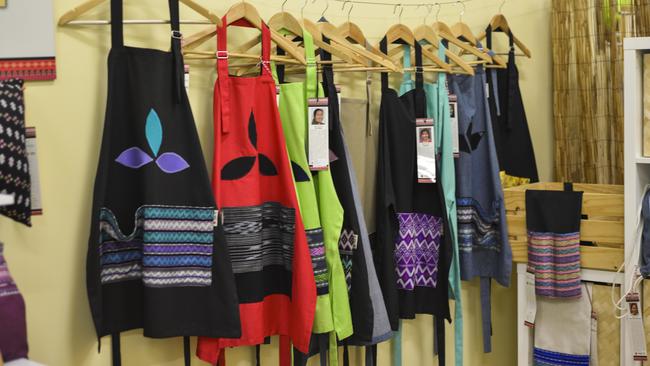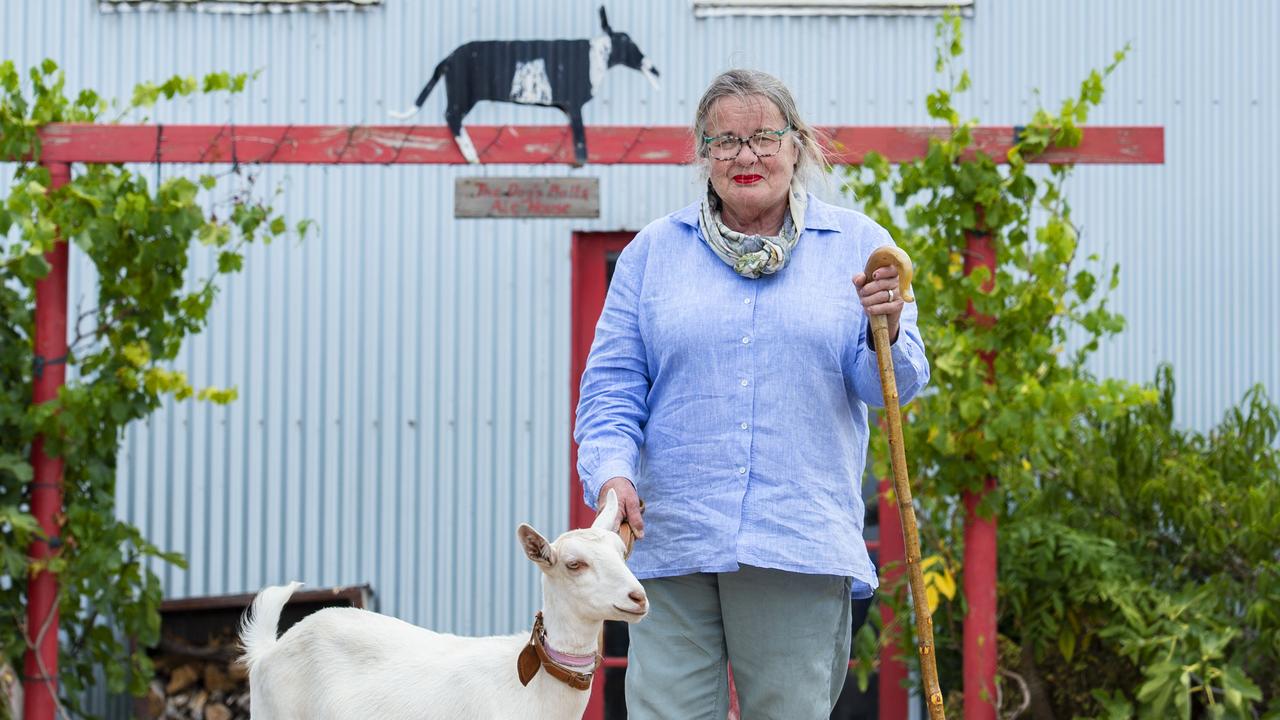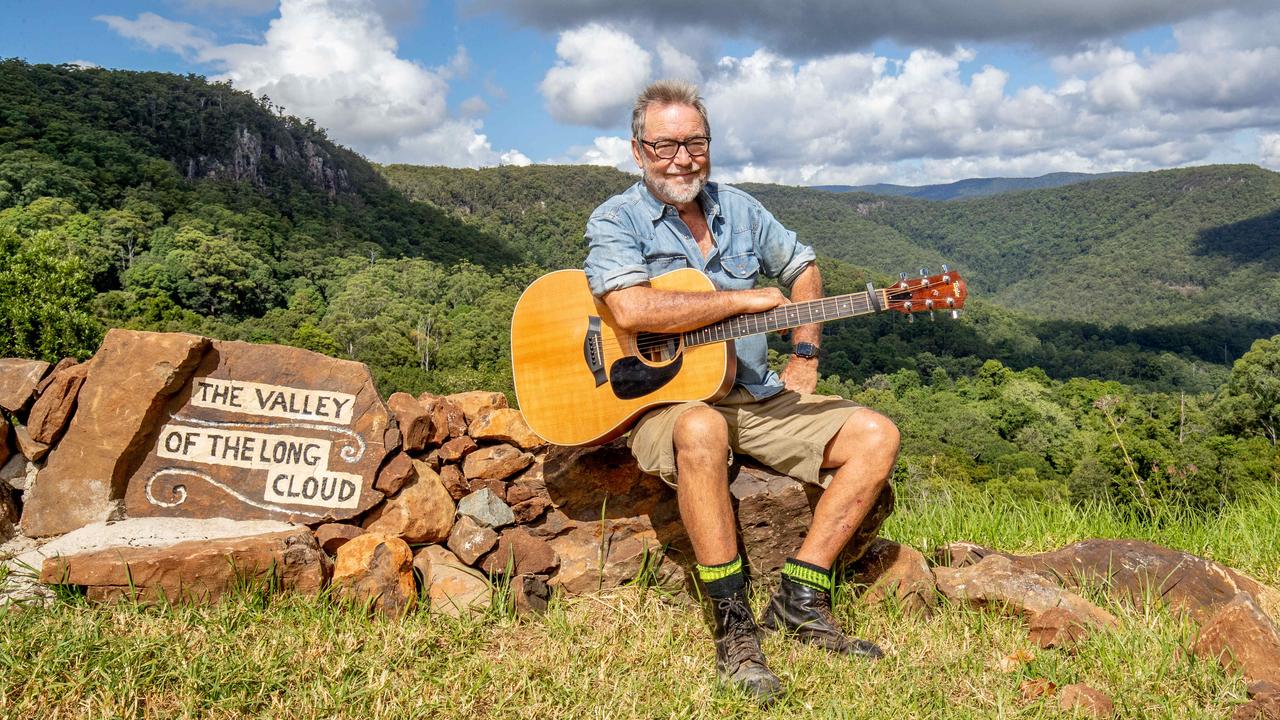Creative Karen refugees create a new buzz in Nhill
SEWING machines hum and women chatter: it could be any craft group in any rural town. Except here in Nhill, in Victoria’s far northwest, there is one major difference.

SEWING machines hum and women chatter: it could be any craft group in any rural town.
Except here in Nhill, in Victoria’s far northwest, there is one major difference.
The women are Karen refugees from Mynanmar and they are busy sewing products for their retail shop, called Paw Po, in the town’s main street.
The group of about 12 women — overseen by co-ordinator of the Paw Po program Alison Creek — represents a success story in the resettlement of refugees into rural Australia.
“When we first came up with the idea to teach the women sewing and sell their products we needed a name and they suggested Paw Po, which means ‘little flower’, to reflect the beauty and growth of what they’re doing here,” Alison says.
After the military took power in 1962 in the country then known as Burma, a brutal regime of persecution, killing, torture and forced labour saw minority groups in Mynanmar flee to refugee camps in Thailand.
While the first Karen refugees arrived in Australia in the 1990s, the first Karen man arrived in Nhill in 2010 to work at the town’s Luv-a-Duck factory, aided by the Wimmera Development Association Migrant Settlement Program.
Since then Karen people have been drawn to the area, now making up about 10 per cent of the town’s population, or roughly 200 people.

According to the Hindmarsh Shire’s Karen Community Action Plan, the resettlement of the Karen people has lowered the ageing of Nhill’s population, increased student numbers across three schools and boosted real estate purchases and rentals.
Accountant Deloitte estimates the economic impact of this increased labour supply, in terms of gross regional product, at $41.5 million.
But it is perhaps at 35 Victoria St in Nhill, the home of Paw Po, where that success is most evident.
“The arrival of the Karen has definitely boosted our economy. It’s been a win-win for them and for the established community,” Alison says.
“Here in Paw Po, the women have developed social connections, gained more English, as well as gaining creativity and confidence, while enriching the lives of the people already here.”
Alison says the origins of Paw Po started when she was running job-ready classes at the Nhill Learning Centre for refugees, teaching skills including sewing classes.
“I’m a passionate sewer, and one of the local businesses in the region made school uniforms and said they would be interested in hiring skilled sewers,” Alison explains.
“The women I was teaching were mostly young with children, and were isolated at home on their own while their husbands worked.”
Alison had previously lived for a decade in Arnhem Land, working with women who painted indigenous designs on ceramics.
“When I discovered Karen women use looms to weave a traditional fabric I could see it was the perfect combination. I asked the ladies whether they’d be interested in making items and they were keen, very passionate.”
So in 2015, the group armed themselves with their creations — aprons, oven mitts, cushion covers and assorted craft — all featuring traditional Karen fabric in some form, and set up a stall at the Nhill Airshow.
“The ladies were nervous they wouldn’t sell anything but in the end about 80 per cent of what they made was bought. Then we just thought, we’ve got to keep this going.”
As an initiative of the Nhill Learning Centre, Paw Po opened in October 2016. They leased a shop, the front half as a retail space and the back half as a workshop.
Alison says from that original group of up to 15 women, numbers haven’t changed, although faces have: as women have become skilled they have moved on to other jobs, or had children.
Paw Po is open Tuesday to Friday 10am to 4pm and Karen sewers are free to come and go during that time. They receive 50 per cent of a sale as “hobby money”, with the other half maintained by the not-for-profit Paw Po to cover overheads.


